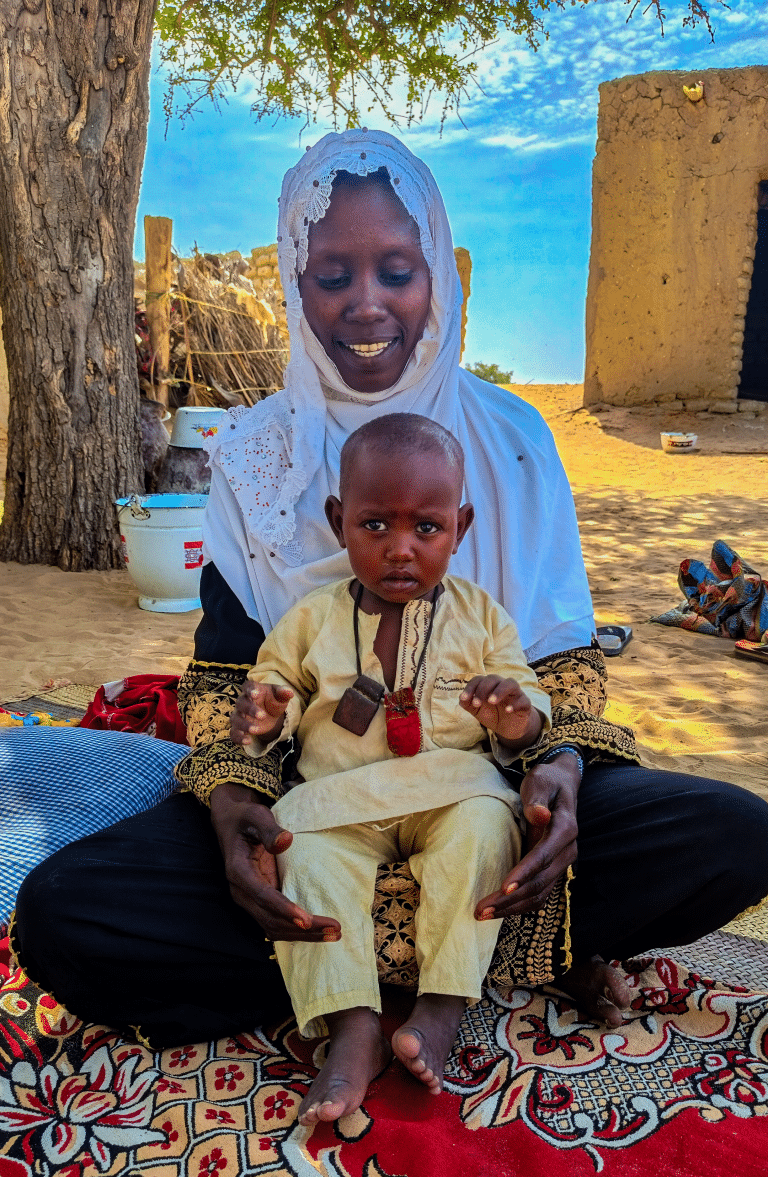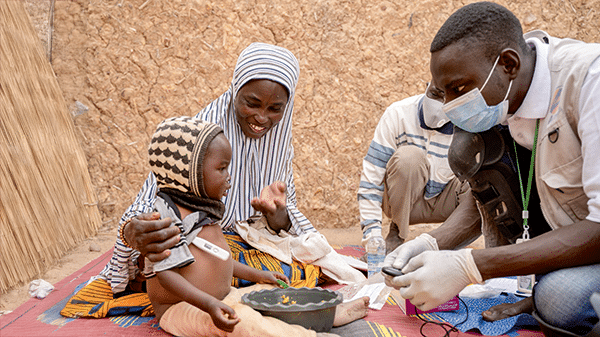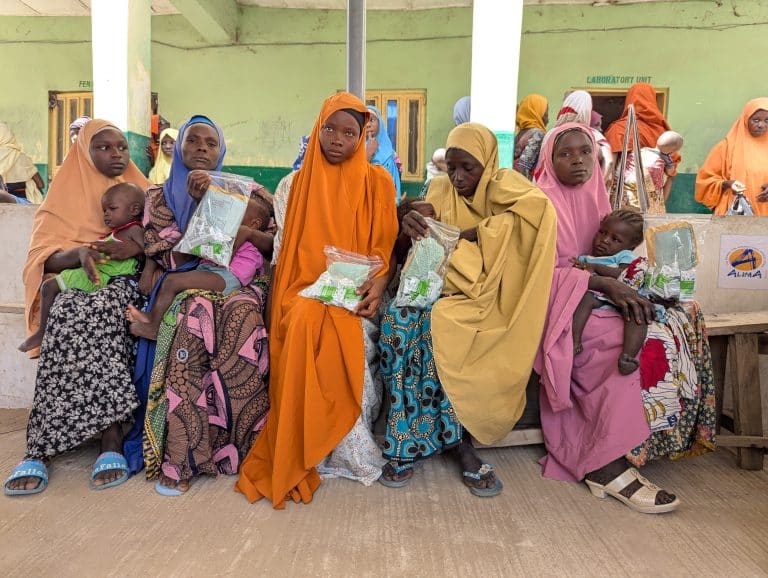AIRE Project
- Pneumonia is one of the leading causes of child mortality in West Africa.
- Late diagnosis of respiratory distress leads to severe and preventable complications.
- The pulse oximeter is a simple and effective technology to improve the detection of critical cases.
The AIRE project (Improving the Identification of Respiratory Distress in Children) aims to systematically integrate pulse oximeters into pediatric consultations to improve the diagnosis of children in respiratory distress.
Funded by Unitaid, this initiative is implemented by ALIMA, Terres des Hommes, Solthis, and INSERM in four West African countries: Guinea, Mali, Burkina Faso, and Niger.
Humanitarian context and challenge
Late diagnosis puts lives at risk
Pneumonia and its respiratory complications pose a significant threat to children under five. However:
- The lack of suitable equipment prevents early detection of respiratory distress.
- Oxygen, an essential treatment, remains difficult to access in many healthcare facilities.
- Healthcare workers often lack the necessary tools and training.
💡 Why does this matter?
- Every year, thousands of children die because of a lack of rapid and accurate diagnosis.
- Pulse oximeters help identify children in respiratory distress and adapt their treatment.
- Better access to oxygen in hospitals can significantly reduce child mortality.
📌 The AIRE project seeks to assess the effectiveness and acceptability of pulse oximeters for large-scale implementation.
➡️ To address these challenges, ALIMA and its partners are deploying concrete solutions to save more children.
ALIMA’s action
💡How does ALIMA integrate pulse oximeters into pediatric consultations?
The AIRE project is based on a multisectoral approach, combining medical staff training, equipment provision, and improvement to the healthcare process.
🔹 Training and community awareness
- Community health workers are educated to identify the signs of respiratory distress.
- Parents are made aware of the importance of seeking early medical care when severe symptoms appear.
🔹 Strengthening health centers
- Training of healthcare professionals in the use of pulse oximeters.
- Providing essential medicines and supplies to improve patient care.
- Joint supervision of activities by health districts and project teams.
📌 Over 200 health centers are now equipped with pulse oximeters, allowing for better detection of severe cases.
🔹 Improving hospital infrastructure
- 8 hospitals are equipped with oxygen extractors to treat referred children.
- Tracking the number of children transferred and cared for in hospitals.
- Data analysis to measure the impact of the project and optimize interventions.
📌 Over 850 healthcare workers have been trained to use pulse oximeters and manage respiratory distress.
Advocacy for widespread adoption
Integrating pulse oximeters into public health policies
ALIMA and its partners have organized several events to present the results of the AIRE project and advocate for its implementation:
📅 Regional conference in Dakar in 2023
-
Goal: to make pulse oximeters and access to oxygen a public health priority in sub-Saharan Africa.
- Participants :
📌 Over 500,000 children under five are expected to benefit from the AIRE project.
Frequently Asked Questions (FAQs)
- It provides quick and reliable detection of respiratory distress.
- It facilitates the referral of at-risk children to appropriate care.
- It is easy to use, even in primary healthcare settings.
- Train health workers in the use of pulse oximeters.
- Improve the diagnosis of respiratory distress.
- Strengthen access to oxygen in hospitals and health centers.
- By integrating them into national health policies.
- By securing a sustainable provision of equipment and supplies.
- By training more caregivers to ensure proper use.
On the ground
Related news

One Sachet, One Chance – Mariam and Hassan’s Journey
In the N’Gouri district, the OptiMAx project combines vaccination with nutritional supplementation to encourage families to return to health centers. Through a mother’s journey, we

OptiMA Trials: When Clinical Research Adapts to Field Realities
In the Democratic Republic of the Congo and Niger, the OptiMA clinical trials successfully combined scientific rigor with operational constraints in complex humanitarian settings. An

NutriVax: Integrating Nutrition and Vaccination to Save Children’s Lives in Nigeria
Every year, millions of children in Africa are trapped in a vicious cycle of malnutrition and infectious diseases. But what if we could fight both


